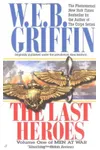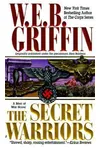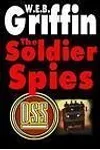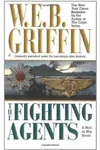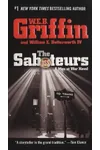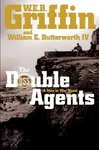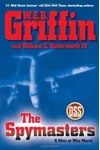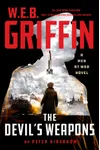Step into the pulse-pounding world of W.E.B. Griffin’s Men at War series, where covert OSS agents dodge danger, outsmart Nazis, and shape the course of World War II! This military fiction saga blends historical grit with thrilling espionage, pulling readers into a shadowy realm of spies, sabotage, and high-stakes missions. With Griffin’s knack for weaving fact and fiction, every page crackles with authenticity and adventure.
Centered on the Office of Strategic Services (OSS), the precursor to the CIA, Men at War follows daring operatives like Dick Canidy as they undertake clandestine operations across war-torn Europe, Africa, and beyond. If you love heart-racing action and historical intrigue, this series is your ticket to the front lines of WWII espionage.
How Men at War Began
W.E.B. Griffin, a master of military fiction, launched Men at War in 1984 under the pseudonym Alex Baldwin. Drawing from his own Army counterintelligence experience, Griffin crafted a series rooted in the real-life exploits of the OSS, established by Franklin D. Roosevelt and 'Wild Bill' Donovan. His goal? To spotlight the unsung heroes of WWII’s covert wars. Later, Griffin’s son, William E. Butterworth IV, joined as co-author, adding fresh energy to the saga.
The series emerged during a surge of interest in WWII narratives, but Griffin’s focus on espionage over battlefield heroics set it apart. His meticulous research and insider knowledge of military culture gave the books a razor-sharp edge, earning praise from veterans and readers alike.
The Heart of Men at War
The series spans nine books, each plunging readers into the OSS’s covert world. Standouts include The Last Heroes (1985), where pilot Richard Canidy and Eric Fulmar race to secure uranium ore vital for the atomic bomb, and The Double Agents (2007), a gripping tale of deception to mislead Hitler about D-Day. The Fighting Agents (1989) follows Captain James Whittaker smuggling supplies to Filipino guerrillas, while The Spymasters (2012) tackles nerve gas threats and Manhattan Project leaks.
Men at War thrives on themes of loyalty, sacrifice, and the moral grayness of espionage. Griffin’s prose is taut, blending technical detail with human drama—think cockpit tension, coded messages, and double-crosses. The WWII setting, from Washington to Nazi-occupied Poland, immerses readers in a world where one slip could doom a mission. Historical figures like Donovan and Wernher von Braun mingle with fictional agents, creating a seamless blend of reality and storytelling.
The series’ style leans on character-driven plots, with Canidy’s brash courage and Fulmar’s conflicted loyalties stealing the show. Griffin’s knack for weaving romance and humor into gritty missions adds depth, making each book a rollercoaster of emotions and action.
Why Men at War Resonates
Men at War has carved a niche in military fiction, lauded for its historical accuracy and vivid portrayal of OSS operatives. Fans, including veterans, praise Griffin’s ability to humanize the covert war, blending high-stakes drama with the bureaucracy and camaraderie of military life. The series’ influence extends to its detailed depiction of espionage’s role in WWII, inspiring readers to explore the OSS’s real history.
Its lasting appeal lies in its timeless themes—courage under fire, the cost of secrets, and the fight for a greater good. As new generations discover the series, its blend of thriller pacing and historical depth keeps it fresh, cementing Griffin’s legacy as a storytelling titan.
About Men at War
- Publication Years: 1985–2024
- Number of Books: 9
- Authors: W.E.B. Griffin, William E. Butterworth IV, Peter Kirsanow
- Genre: Military Fiction, Historical Thriller
Ready to infiltrate the world of WWII espionage? Grab The Last Heroes and dive into Men at War’s thrilling blend of history and heart-pounding action!
